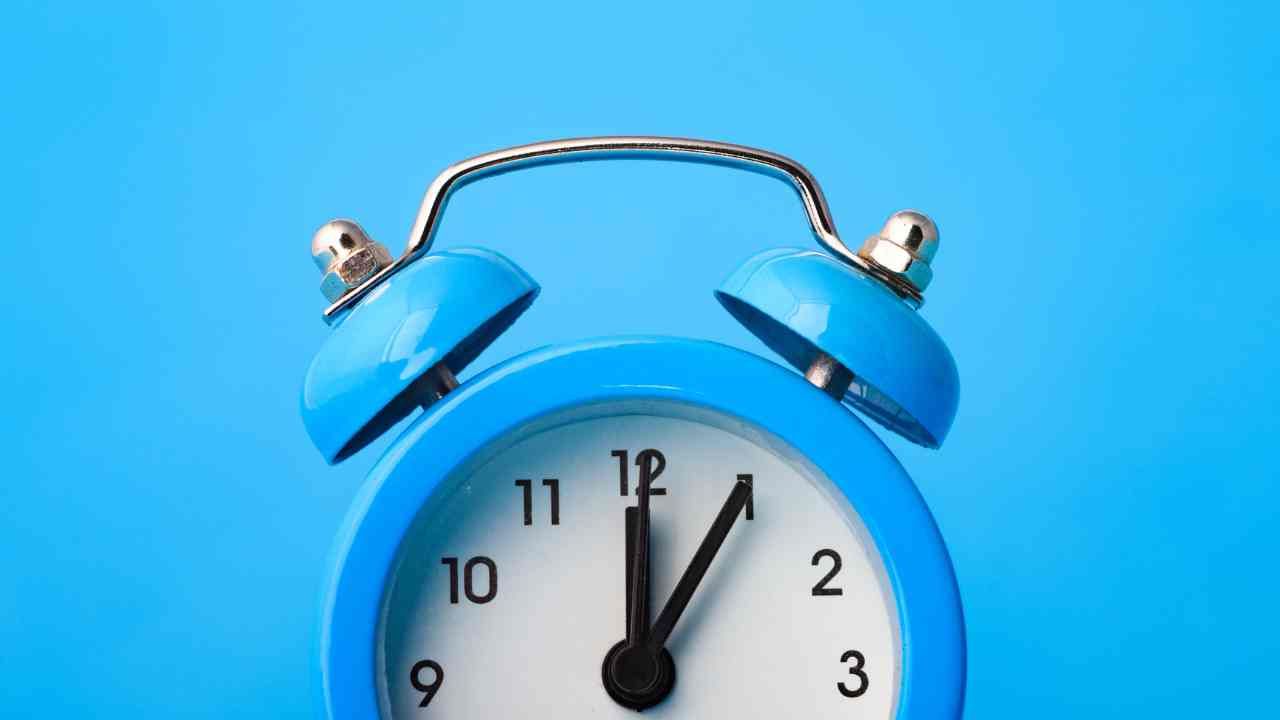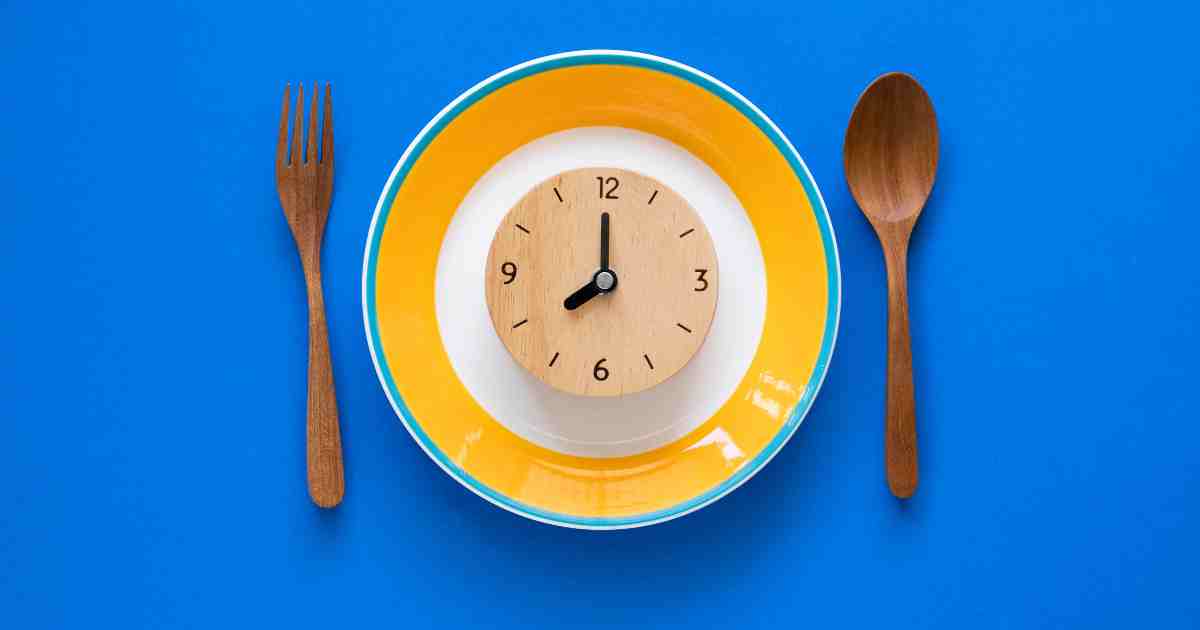Should You Always Eat at the Same Time Each Day?

Crappy diet advice: Always eat at the same time every day
If you’re anything like me, you grew up hearing a ton of different diet tips.
Do you remember when back in the day, just about any women’s magazine, and many of men’s ones too, had those “How to Lose Weight” articles in them, with the headline featured prominently on the cover?
It was usually something wild to grab your attention like, “Drop Ten Pounds by Eating So Much Grapefruit You Lose the Will to Live,” or “Fifteen Simple Exercises that You Can Do from the Comfort of Your Prison Cell,” or “How to Slim Down for Christmas by Pretending You’re Atheist and Morally Opposed to Candy Canes!” or something to that effect. You know I’m being facetious, but not that much.
If you do remember seeing these tips in magazines, do you remember what any of them were? Take a second to see if you can remember any of them. Also, what kind of tips have you seen online? Would you say that diet advice has changed over the years or not?
And also, do you usually take this advice? I know back in the day, when I had my little copies of Seventeen, Cosmo, and Vogue. I believed pretty much everything I read. It was sometimes written by a doctor, or a nutritionist, or some lady who had lost half a ton of weight, or some actress who probably wasn’t even doing the diet she claimed she was doing anyways, or maybe just a journalist who was in a rush and just repackaged last year’s diet tips, who knows, but I trusted what I read. What about you?
Well today I want to look at one specific piece of weight loss advice that I know I’ve heard over and over, which, is, actually, a crock of hot steaming BS, sorry for the visual there.
That BS advice that I want to talk about today is the following:
Always eat at the same time each day.
How many of you have heard that one before?
So if you have breakfast at seven, always have it at seven. If you have lunch at 12:30, always have it at 12:30, if you have a snack at 3pm, always have a snack at 3pm and so on and so on.
If you hear this advice, it might seem like a decent idea. I mean, for most things, it’s good to have a schedule, isn’t it? So, my eating should also be highly regimented with regard to time, right?
Well, not really. When you read this advice, this, “always eat at the same time” hullabaloo, you often hear things like, “This will prevent you from overeating.”
It’s garbage advice, actually. It’s an unsubstantiated claim. It’s a boldfaced lie, really. Don’t fall for the lie. Please!
We’re going to look at the science behind this in a moment, and I’m actually going to make the case that eating on a regular schedule might even cause you to be hungrier, but first, I want you to think about something.
Let’s just do a simple thought experiment here.
Let’s say that I grew up hearing that I had to eat at the same time every day, or else, I was going to get super fat! Okay, so I decide to take the advice, and eat on a very regular schedule.
But as we all know, life can be unpredictable sometimes. Let’s say, for example, that I decide I’m always going to eat lunch at 12 noon, come hell or high water, because that’s what the fashion magazine writer lady told me I had to do in order to be pretty enough to buy fancy dresses that I saw in the fashion magazine.

So here’s a little thought experiment that we’re going to do together, okay? Now remember, I have to eat lunch at noon or I can’t buy the fancy dress because the magazine said if I don’t eat lunch at the same time every day, I’m going to be fat.
And the magazine says I should never be fat, although, half of their articles are about weight loss, so I don’t know what the hell they would write about if we all finally did lose the weight but never mind. We’ll cross that bridge when we come to it.
The revolution is underway and we’re going to stop wasting all of our precious mental energy on obsessing about our weight. If you’re currently trying to lose weight, how many years have you been trying for? Just think how much more mental space you’ll have when you finally lose it for the last time, and move on to bigger and better things, albeit in a smaller dress size.
But I digress. Going back to our sh*tty diet advice, what happens if I have this belief that I have to eat lunch at the same time every day or else, and then something comes along and messes with that plan?
It happens, right? You get stuck at work, or the restaurant you wanted to go to is closed, or you burn your bacon and have to start cooking all over, whatever. Now you’re eating at 1pm or even - gasp! - at 2pm! God forbid!
Here’s what I want to ask you: If you have this firm belief that you always have to eat at the same time and you’re now, in effect, “making a mistake,” what do you think’s going to happen?
How are you going to feel, especially if you’re trying to lose weight and you’ve now, ostensibly, blown it?
I think you’re going to feel pretty lousy. You’ve broken this rule and now you’re in this negative headspace and we all know what happens when you allow yourself to go there.
It’s this, “Oh my God. I messed up again. Dieting is impossible. I will buy Doritos. I deserve Doritos, because the lady in the diet magazine said I had to eat at the same time every day and I didn’t, therefore, I’m having a bad day. Therefore, this diet is one I will shove. Therefore, Dorito, wait for me, my love.”
The point is, if one day you break this rule, but you have it in your head that you need to follow this rule, you’re going to feel bad. And I don’t want you to feel bad about this rule, because, it really has little to no basis in science. Which, apparently, doesn’t matter, as somebody somewhere decided it was true, and now it’s all over the place.
For example, a quick Google search for the phrase, “Should you always eat at the same time?” pulled up a blog article on the website of the University of San Diego School of Medicine’s Center for Healthy Eating and Activity Research, which is a nonprofit organization that has programs to help with weight loss, overeating, binge eating, and emotional eating. Okay, so these folks should be experts in all things related to weight loss, right?
Yet, they have this craptastic advice on their website, which is: If you’re running a marathon, you should pace yourself and therefore, you should also eat in the same way, which is to say at regularly scheduled meal and snack times. So, based on a metaphor that someone over there pulled out of their leggings, eating should be approached in the same way as running over 26 miles. Um, what?
The site - and remember this is a site whose main purpose is helping people who have obesity and/or are otherwise struggling with their eating - then goes on to give you examples of what to eat, which includes eating really frequently (which hopefully you know by now is a bad idea for most people), and recommends lots of really low-fat and pretty high-carb foods (which you also hopefully know by now that that’s a bad idea too), interspersed with claims like that a sliced apple a few hours after breakfast should keep you energized until lunch. Really? What is going on here? I have never felt energized or satisfied simply by eating a piece of fruit on its own. I don’t know about you, but that just makes me hungrier.
So, I’m beating up on this one particular institution pretty hard, but it’s just because they were the first one that came up in my search. There are thousands of sites out there peddling the exact same crappy diet advice disguised as something somehow scientific.
And what do we do? We believe it. We try it. It doesn’t work. We place the blame on ourselves. We’re weak. We’re lazy. We have no willpower.
You know what I have to say about that?
F*ck that sh*t. Honestly, f*ck it right in the face.
The advice was bad. You received bad advice. You are not weak. You are not lazy. You do not have a lack of willpower. Okay? I need you to understand that. This was not your fault. This was never your fault.
This idea that we have to eat on a fixed schedule or else, is part of this huge collection of weight loss advice that is constantly thrown at us even though it has pretty much no data to back it up.
Another website that popped up in my search with this awful advice was a site called simple.life, which appears to be a home decoration blog, but also they’re giving us nutrition info, because, yeah, that makes sense. Like, I know I should be nice, but you’re publishing things on the internet without really verifying if there’s anything to support your claim. Do better.
Anyways, they say that, “According to dietary studies, following a regular eating time may reduce the chance of weight gain and other health risks . . .” Oh, they’re claiming they have data! You know we’ve got to look at it, don’t you?
The page linked to an article which then linked to two literature reviews. I’ve linked to them down below if you’re curious, but I read through them and the results are really all over the place. A few of the studies referenced did find a bit of a link between irregular eating times and some health issues, but there were so many confounding factors that don’t appear to have been well controlled-for. Many of the studies included in the reviews found no link between irregular eating and metabolic syndrome, for example.
So we have to be careful when we see health advice online. Yes, I’m fully aware of the irony of this statement.
I looked at more research to see if I could find a link to irregular meal timing and weight gain, but no such luck. If anyone has any good research on this that they’d like to share with me, please email me with it, but really I didn’t come across any.
So, the research doesn’t seem to support this idea that we have to eat regularly, even though this advice is splashed all over the place.

And as I mentioned, I would go so far as to say that eating at regular times might even make you hungrier.
Now, there are many different factors, both internal and external, that influence whether or not we’re hungry. One of them is a hormone called “ghrelin.” You may have heard of it before. It’s often referred to as the “the hunger hormone,” and it basically does what it says on the tin. It makes you feel hungry.
There are various parts of the body that release ghrelin, but the main one is the stomach. One of the cues for your body to release ghrelin is when your blood glucose is low.
Another one is simply. . . the clock! Our bodies have a clock-like mechanism, controlled by the liver which then communicates with the brain and has a hand in ghrelin secretion.
And so what happens is that if you eat on a regular schedule, your body will begin to secrete ghrelin just a bit before your eating times. I’m sure you’ve noticed this phenomenon if you usually eat lunch at the same time every day, for example, you’ll usually start feeling pretty hungry when lunch time nears.
But here’s the thing, this hunger that you’re feeling that occurs because of this regular eating pattern is really mental. It’s happening because your body is saying, “It’s time to be hungry. This is food time,” and not necessarily because you don’t have enough food in your body at the moment.
So here’s where I’m going to make some enemies, especially among my colleagues in the health and wellness space. Sorry guys, but I’m coming for you today.
Something that’s super popular right now is what’s called “intuitive eating.” Have you heard of this before? The basic idea behind it is that we need to learn how to understand our hunger cues and that we shouldn’t deny ourselves any one particular food or food group but instead learn to trust that our bodies will tell us what to do.
Well, I know this philosophy has worked for some people, and it’s definitely less stressful than doing something like calorie counting, which does not work, especially not in the long term.
However, if we have a clock in our livers that tells us we’re hungry solely based on the fact that it’s noon and we always eat at noon, is that true hunger? I’m asking sincerely because I don’t know. To me, that sounds like scheduling, not true hunger.
So what am I getting at here? If you eat at regular times each day, you will receive these hunger signals from your body simply because it’s time to eat. So you’ll be getting these powerful feelings, and if you don’t know already, let me tell you that they can be quite powerful, simply because it’s “time to eat,” and not necessarily because your body needs food at that moment.
So if you would like to get more in control of your hungry, and get closer to what I would call experiencing true hunger, which many of us have never experienced at all in our lives, one thing you could try is switching to a more irregular meal schedule.
For example, you could have your meals at different times each day, or you could try skipping a different meal on different days, maybe skip breakfast on Monday, dinner on Tuesday, lunch on Wednesday, whatever works with your schedule. As always, try it, track it, tweak it. See what changes you notice, and of course bear in mind that the first few days that you try this might feel really hard, but it should get easier very quickly.
So, in summary, the advice that we always heard, to always eat at the same time every day, is, not necessarily good advice. As with any diet tip you may hear, all that really matters is what works for you, so if you like the idea of eating at the same time every day, then by all means stick to that. However if you’d like to give a more varied eating schedule a try, I would say don’t be scared that you’re doing something wrong by not eating at the same time every day, because you’re not.
Alright so that’s it for today. I hope this information has been useful to you and has made you think.
If you know anyone who could benefit from it, please share it with them.
Thanks so much for being here, and have a happy and healthy day.
Sources:
https://chear.ucsd.edu/blog/scheduled-eating-why-its-beneficial-and-how-to-start#
https://www.simpleminded.life/eating-at-the-same-time/
https://open.spotify.com/episode/4DbkScvxdIMcvR9Npe4Y5l?si=a6760b8bf7ef4fa2&nd=1
DISCLAIMER: Nothing in this blog post is meant to serve as a substitute for medical advice.

